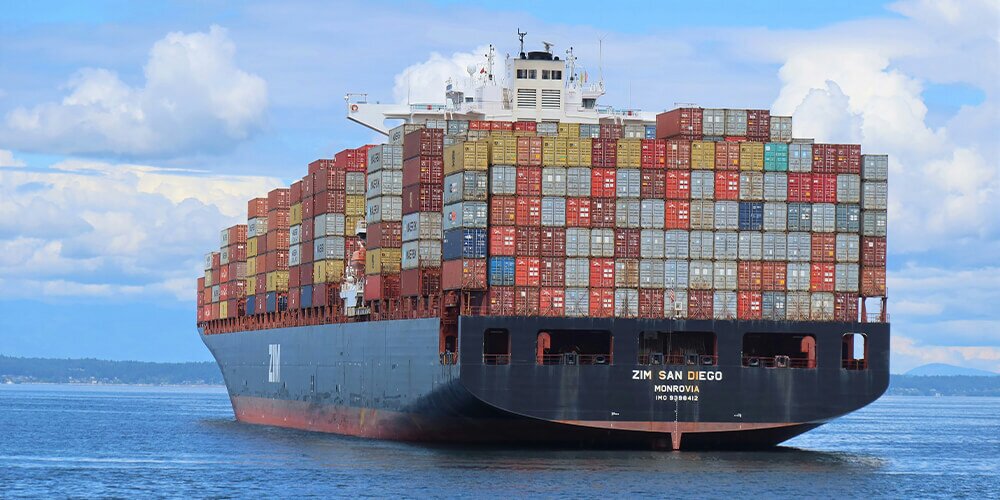Browse our services
Explore how Brookes Bell can help you
Find an expert
Meet our team, find and expert and connect
Contact us
Get in touch, we're here to help

As the container shipping industry undergoes a significant transformation to replace ageing fleets with efficient, environmentally-friendly vessels, an orderbook of 5.9 million TEU is set to replace the ageing fleet of 2.6 million TEU.
Container shipping is set to enter a once in a generation fleet renewal, with an orderbook delivering into a fleet that has now reached the highest average age on record.
Chief Shipping Analyst at BIMCO, Niels Rasmussen, said: “Container ships have reached their highest average age yet at 14.2 years, the highest average age of the three main shipping sectors. The dry bulk fleet has an average age of 11.9 years, whereas tankers on average are 12.8 years old”.
According to BIMCO, the percentage of ships in the container fleet older than 20 years has reached 21%. Of those ships, the size segments 0-2999 TEU and 3000-5999 TEU contribute 76% and 16% respectively, highlighting that fleet renewal in the past years has focused on the post-panamax segments.
Rasmussen added that: “more importantly, nearly 70% of all containerships are over 10 years old. All ships built according to slow steaming principles so far, have been delivered within the last 10 years, allowing for lower energy consumption per container carried”.
A survey by Alphaliner of the existing fleet versus the orderbook showed MSC as the owner of the oldest fleet compared to other top ten carriers.
Alphaliner confirmed that: “Today’s orderbook is the largest it has ever been in terms of TEU capacity, and this year’s ordering frenzy was, at least in part, driven by the carriers’ ambition to increase vessel efficiency and make greater use of alternative fuels such as LNG or methanol. Apart from cost reductions, the overall aim is to decrease CO2 emissions per container over a given distance”.
As carbon pricing regulations and energy costs rise, newer tonnage will become more attractive to consumer facing shippers wanting to mitigate scope three emissions. To stay competitive, carriers will need to replace their fleets.
Research shows that demand for containerships is at an all-time high, with 902 on order, equivalent to 25% of the extant fleet.
Despite the downturn in container freight rates over the last 15 months, recycling of ships during 2023 remained low compared to the last decade. The desire to scrap is set to grow as container shipping faces further financial challenges ahead.
According to the latest Container Market Annual Review and Forecast from UK consultants Drewry, container carriers forecast a combined loss of $15bn in 2024. Drewry predicts fleet and demand growth will not be in sync until 2026.
Drewry’s senior manager of container research, Simon Heaney, said: “Based on our long-term supply-demand projections, carriers face a relentless challenge to achieve equilibrium over the next few years”.
Analysts at Sea-Intelligence, meanwhile, have suggested that 2028 is the earliest for overcapacity absorption of all the new capacity flowing out of yards in Asia, which is in line with the play-out after the global financial crisis.
Brookes Bell excels in the highly-complex field of naval architecture, which requires practitioners to have an acute understanding of multiple branches of engineering to create beautiful, yet seaworthy vessels and structures.
If you need naval architecture support, Brookes Bell’s depth of experience and culture of innovations should make us your first choice.
For more maritime industry insights, news and information, read the Brookes Bell News and Knowledge Hub…
SEA-LNG Forecasts Elimination of ‘Methane Slip’ Within 10-Years | LNG and Container Ships Dominate Newbuild Orders | LNG Carbon Capture Test Achieves ‘Promising Results